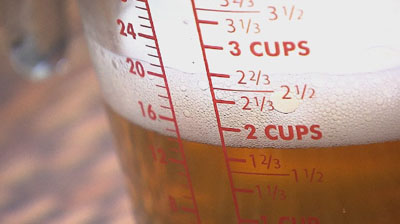
UPDATE: This evidentiary summary was overturned by administrators at the USDA. The final consumption levels were kept at the pre-2020 levels. (2021)
UPDATE 2: Likely because this review returned the findings it did, the 2024 review was removed from governmental oversight and assigned to the nonprofit National Academies, which do not have the same obligation for transparency or avoiding conflict of interest. (2024)
How much difference does a single drink make? Enough to save lives, according to preliminary dietary guidelines published by the United States Departments of Agriculture (USDA) and Health and Human Services (HHS). The guidelines take the small yet revolutionary step of lowering the recommended maximum drinks per day for men from two to one.
“The observational evidence base with respect to alcohol consumption is insufficient to recommend drinking at any level,” the team writes. In particular, they note problems with the research connecting two drinks a day for men to avoidance of cardiovascular outcomes, as well as a growing body of research connecting alcohol use to cancer risk. They cite recent studies that try to remove some of the bias in historical evaluations of alcohol risk, which, in aggregate, suggest men who drink 1 to 1.5 drinks a day are at less risk than those who adhered to the old standard of two.
“For decades we’ve taken flawed studies with easily identified sources of bias,” said Carson Benowitz-Fredericks, MSPH, research manager for Alcohol Justice, “and made firm conclusions based on them. What we’re seeing now is hardly a revolution, it’s just the government catching up with the state of the science.”
While the reduction in recommended drinks per day seemed nominal, it has raised the ire of the alcohol industry. Speaking to the Santa Rosa Press-Democrat, Rob McMillan, executive vice president of Silicon Valley Bank’s wine division, lamented that the guidelines were “one more piece of ammunition to those who are anti-alcohol.” In the same article, R. Curtis Ellison, M.D., a researcher with a history of receiving alcohol industry funding, invoked the Trump Administration’s signature dismissal of unfavorable reports, calling the report “fake news.”
This is a remarkable turnabout for an industry accustomed to finding HHS amenable to its interests. As recently as 2018, Anheuser-Busch InBev had convinced the National Institutes of Alcohol Abuse and Alcoholism to allow them to fund a trial on the “health benefits” of alcohol consumption. The trial, called MACH-15, was led by a researcher who cleared every step of the protocol with representatives of the mega-brewer, and who promised them that the results could be used to convince doctors to prescribe.
“The alcohol industry took for granted that they had federal consultants under their thumb,” said Michael Scippa, public relations director for Alcohol Justice, “and they’re going to try and fight this. We need to be louder, and send a message to Washington that these revised guidelines are smart, scientific, and long overdue.”
The comment period for the revised guidelines stays open until Augst 13, 2020. Alcohol Justice strongly supports these guidelines.
TAKE ACTION to voice support for lowering the safe alcohol consumption levels.
READ MORE about corruption in government alcohol research
READ MORE about the myth of healthy drinking.
READ MORE about Big Alcohol’s French Paradox fraud.
